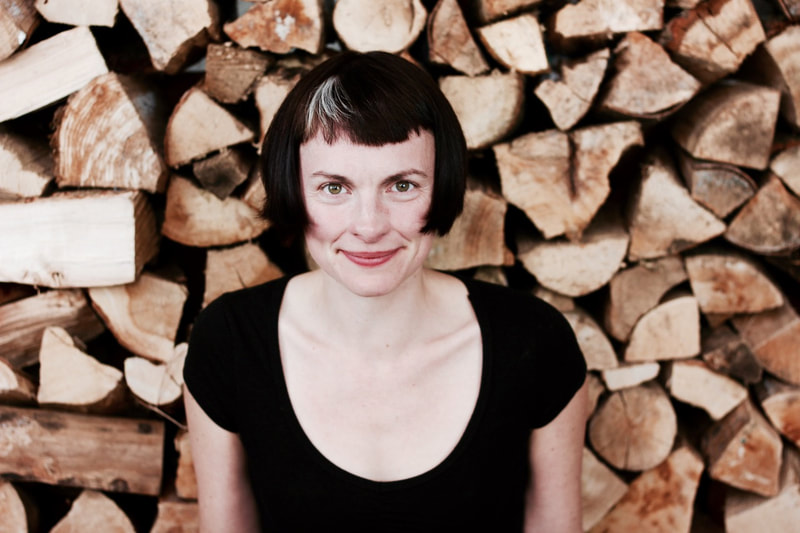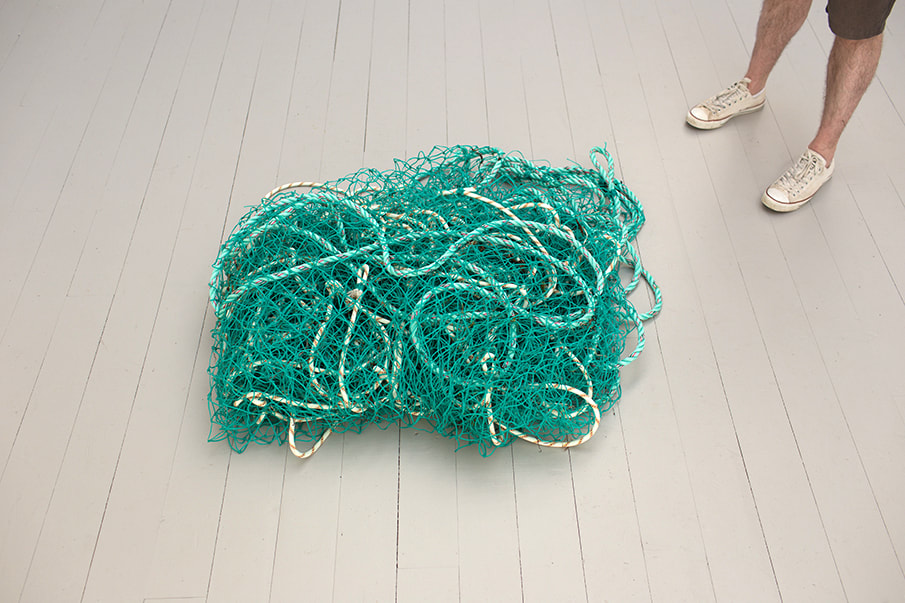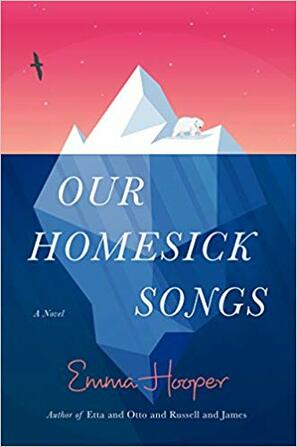|
Here's Emma Hooper, musician, novelist, knight. (Her musical project "Waitress for the Bees" has earned her a Finnish Cultural Knighthood.) She's also an expat Canadian living in Bath, UK, but I got to meet her on this side of the Atlantic at the 2015 Amazon First Novel Awards, where she read from her bestselling Etta and Otto and Russell and James. I was happy to see her (and her well-travelled baby) again last fall at the Vancouver Writers Festival. This time she pleased the crowd with part of her new book, Our Homesick Songs -- "a brilliant and tender dream," says Affinity Konar. It is that, but like Emma, and like its child characters, this book has a smart, slightly mischievous energy. Our Homesick Songs manages to be about the exodus of Newfoundland workers to Alberta, and also not quite fully of this world. It's filled with tiny perfections, like the pseudonym of "Don" for a teenage girl, who in turn names her wolflike dogs Giannina and Giancarlo. It folds in smaller stories, too, including one about how the snakes left Ireland, and the tales in old songs like The Water is Wide, which she talks about below. (Continuing the home-leaving theme, she'll be teaching a course in Italy this summer on Perfecting Your Prose. No envy here, none at all.) The image on the right is from Mark Clintberg's work, Not the one but there is no one else, which influenced Emma, and feels like a visual conjuring of her novel. (Clintberg is an artist friend of hers who made the piece in Newfoundland.) Watching Emma knit and manage all the book's nets is delightful. Here's what she had to say about writing and about being a semi-abandoned child of the '80s. 1. This novel is set in the 1970s and the 1990s, in Newfoundland and in the Alberta Oil Patch. So far, so grim, right? Yet this book is in no way grim, despite the economic anxieties and family problems it portrays. Can you describe your view of the tone? I think a simple way of describing it would be “hopeful.” The book is very much about a champion for hope, and hope for hope’s sake. The two child-protagonists, Cora and Finn, have very different plans and ideas, one quite gritty and realist, and one, well, not, but the hope they share is the same. It lots of ways the book is about looking back, to ancestry, cultural heritage, folklore . . . but it’s also about balancing that out by looking forward: to hope, the thing that pulls us forward. 2. I'm sure every interview asks you about music! Did you find musical structure influenced the novel's back-and-forth structure? And does any particular song go with this book for you? The folk songs in the book all have at least a bit of thematic significance individually, with The Water is Wide being perhaps the most potent. It’s a folk song so old and so scattered in lineage that you can’t actually trace it back to any one person or place, it’s a mosaic of a cultural artefact, passed down and pieced together by many different hands from different lands (I just made that up but it sounds like a saying, doesn’t it? Ha!). That’s an idea that important, central, even, to the book. As for musical structure, well, I do love to play with both white space and the back and forth of time and voice in a way that it’s likely my musical background underscores. It’s also, hopefully, a bit reminiscent of the inescapable sound of the wind and the waves in places like the outport community where Our Homesick Songs is set. A sort of melody-less song of itself. 3. On that note, I love the way the kids, Cora and Finn, are always practicing. The instruments are constants when their lives turn uncertain, but you're not sentimental about it. I'm especially interested in your portrayal of the tie between Finn and his accordion teacher. Can you talk about that? As a kid learning violin, my parents used to say I only had to practice on the days I ate. I wanted to represent this idea of a deep-rooted musical community, where making music isn’t a flashy or showy thing at all, no stages involved, just something natural that people do, that people have to do, that people have always done and will always do. 4. I kept thinking about parallel existences and other possible lives for these characters, which they think about too. How do you see that playing out in the settings--Big Running and Little Running, St John's and Alberta work camps-- which you describe quite differently? Anyone who has moved away from their hometown (or home country, even more so) knows the feeling of having to reassess what it is, exactly, that makes you you. The paired excitement of being able to be anyone or anything, being free from expectation and tradition, and, at the same time feeling somehow more bound by that tradition, that nostalgic idea of home, than ever before. I wanted to explore that liminal place in the book, especially with Cora, who, at 14, is also dealing with the overhauling of identity that comes with adolescence . . .. 5. This book walks the line between magical and realistic, and you stay just this side of magic. Can you discuss that a little? I think hope itself often walks this line, between magic and realism, and, at times, allowing ourselves hope can seem as fruitless or difficult as believing in magic, so it made sense for me to blend the lines between the two here, in this book. Also, much of the magical thinking and hoping comes from Finn, who, at 11, is in that in-between place himself, between the magical beliefs and ease of childhood and the realism of adulthood, so it made sense to me that his stories and plans should reflect that tension. 6. It's also about family history and different generations, like many novels, and there's certainly conflict, but to me, that's not the book's point, or its power. Does the title play into that, for you? Yep, certainly. The title, Our Homesick Songs, is a reference to an idea that comes up in the book, that ‘all songs are homesick songs’, meaning all songs—or music, really—has the power to transport us into our own past, in a Proustian Madeleine kind of way. Only I’ve extended that idea of person past to include our ancestral and cultural pasts too, songs, therefore, have to ability to connect us with our family and extended-community family over both space and time . . .. 7. Like you, I have young kids, and I'm envious of--or homesick for--these '70s and '90s parents who let their children go boating alone and wander around outside all day, etc.! Was that on your mind? Ha ha, yes! And '80s parents too, aka mine . . . I spent a crazy amount of time out exploring the woods and ravines around our house as a kid; it was amazing, of course, at least in retrospect. When I think of it as a parent it’s also terrifying, of course . . .. As for the characters in the book, well, I guess there’s a reason why most child-heroes are orphans, or at least semi-abandoned. The freedom gives them agency, as well as the time to hatch and follow-through ambitious, over-the-top, schemes and plans. You can buy the book at your local independent bookstore, Chapters, or Amazon.
0 Comments
Leave a Reply. |
Storybrain
Alix interviews other writers about their work. Those listed in the Blog will be migrated here sometime! Archives
May 2020
Categories |



 RSS Feed
RSS Feed
